Table of contents
Irene Käosaar: Let’s find a common language through song!
Singing Party “Drive Slowly Over the Bridge” in Narva on 20 August
Registration for free Estonian language courses to open again on 25 August
KU-KУ fair to showcase Estonian language-learning opportunities in September
Looking ahead to the new academic year at the Estonian Language Centre in Narva
Looking ahead to the new academic year at the Estonian Language Centre in Tallinn
Language studies offer summertime fun to learners around Estonia and Estonians abroad
People of different cultures contribute to summer events organised by Integration Foundation
Roma community mentors from Valga host city camp for youngsters
Nominees for the annual Integration Awards can be submitted until 13 September
Open calls for tenders and calls for proposals
Irene Käosaar: Let’s find a common language through song!
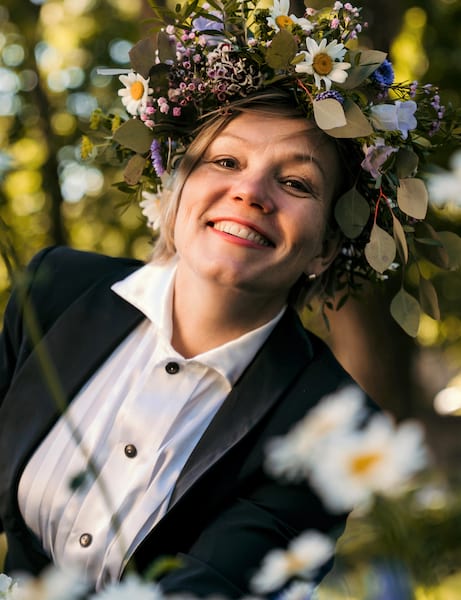
30 years. 30 years of independence we ourselves have experienced. And how did it all start? Through singing. Singing freely and as one. People of different nationalities singing together. For me, 20 August 1991 started in the year of the Singing Revolution, 1988. That spring I graduated from high school with the promise of the bright future that lay ahead – one that included Estonia regaining its independence.
Today, three decades later, I invite everyone to join us here in Narva to once again sing together and celebrate the 30th anniversary of the restoration of our independence. We will be singing songs that mean a lot to us, in various languages, at an event being organised by the Integration Foundation and going by the name Sõida tasa üle silla or ‘Ridge gently over the bridge’. The mini-festival will take place in the EV100 park in Narva on 20 August.
The event is designed to build bridges between people, eras, regions and cultures and to allow us to find a common language through song.
I hope we all have bridges in our hearts and minds – the kind that connect us and bring us together.
Irene Käosaar, Integration Foundation director
Singing Party “Drive Slowly Over the Bridge” in Narva on 20 August
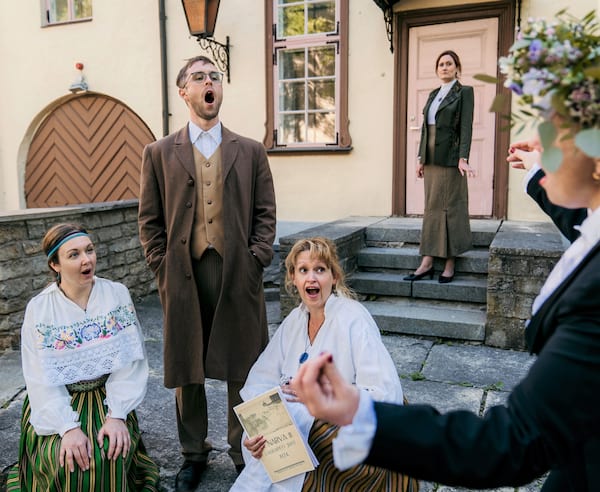
The aim of the singing party is to bring together people of different nationalities, different mother tongues and from different regions to sing cherished songs to celebrate the 30th anniversary of Estonia's re-independence.
This party is a bridge between various communities, as all people living in Estonia are invited to take part in it - be they choir singers or just people who like music and singing. The event will be live-streamed online.
The repertoire of the singing party "Drive Slowly Over the Bridge" includes people’s favourite songs that are characteristic to Narva. There will be songs from Estonia, Russia, Belarus, Ukraine as well as from Ingrian nations on stage. The lead singers of the party will be local soloists, choirs, and the Tandem Choir of the Estonian Language House in NarvaThe producers are Anna Farafonova and Alo Puustak, directors are Krismar Rosin and Ave Landrat, artist is Deniss Polubojarov and video artist is Alyona Movko-Mägi.
The concert performance is going to take place in the Narva EV100 Park, entrance is free. Only people who have been vaccinated, recovered from COVID-19, or presented a negative test result can take part in event. People under the age of 18 do not need to submit the COVID certificate. More detailed information can be found here.
Registration for free Estonian language courses to open again on 25 August
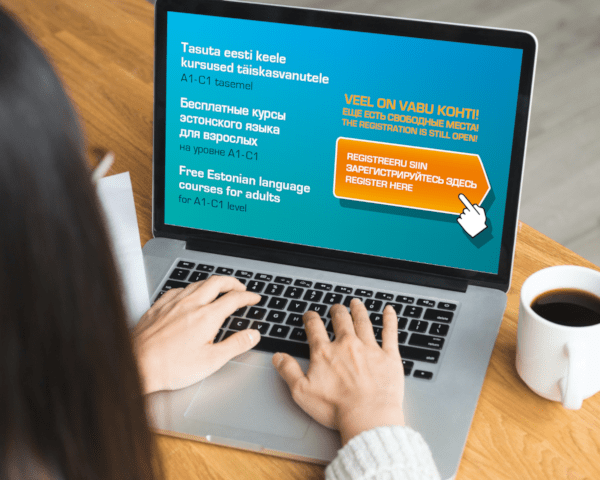
On August 25th at 10 a.m., registration for the free Estonian language courses will start on the website of the Integration Foundation. A total of 91 courses can be registered for, where 1456 adults interested in Estonian language are welcome.
Free Estonian language courses are being held from September to December this year, with each course lasting for 120 academic hours.
The Integration Foundation provides free Estonian language of communication courses at A1, A2, B1, B2 and C1 levels. Adults at least 18 years of age can register for the courses. The courses start in September.
They will be taking place both face to face (in Tallinn, Narva, Jõhvi, Kohtla-Järve, Ahtme, Tartu, Pärnu and Sillamäe) and online. When registering, you should bear in mind that if circumstances require it, all courses will transfer to an online platform rather than taking place face to face. You may also be required to present a COVID certificate when attending face-to-face lessons.
In order for the registration to go smoothly, it is recommended that you read the rules for course registration and test your language skills in advance, which can also be done on the Foundation's website. The timetable will be published on our website a week before registration opens. Registering requires you to officially identify yourself.
The next round of registration will open in October when the Integration Foundation will be offering language enthusiasts around Estonia a further 240 places on face-to-face courses (in e.g. Sillamäe, Jõhvi, Kohtla-Järve, Ahtme and the Kiviõli area) and 128 places on online courses.
In addition to the courses starting in September, we offer other language-learning opportunities you can already take part in or add to your plans.
Other free Estonian-learning options:
- Courses at the B1 level for citizens of third countries (250 places opening in September and 250 in January)
- Language training at the A1, A2 and B1 levels to apply for Estonian citizenship
- Estonian language cafés
- Estonian language and culture clubs
- Cultural studies
- ‘Language Roulette’ series of virtual conversations
- Events run by the Estonian Language Centres allowing you to practise the language
In addition to online registration, it is also possible to access the free Estonian language courses through counselling. One of our advisers can help you choose the best form of study and practice for you, recommending a course or activity offered by the Integration Foundation or one of its partners based on your needs, level of motivation and previous learning experience.
Additional information on the possibilities of learning and practicing the Estonian language, as well as counselling, is available by calling the free-of-charge information line 800 9999 or by e-mail info@integratsiooniinfo.ee.
KU-KУ fair to showcase Estonian language-learning opportunities in September
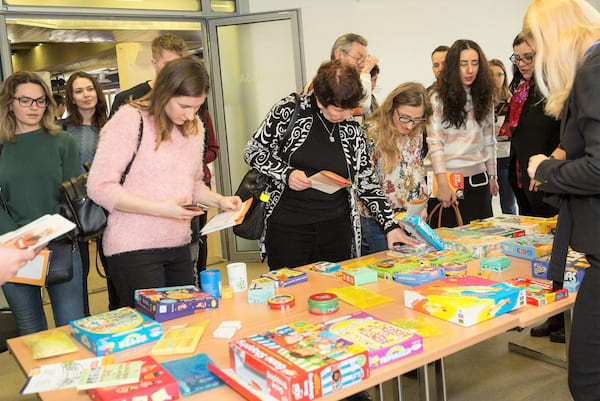
Organised by the Integration Foundation, the KU-KУ fair is designed not only to provide information on ways in which people can go about learning Estonian, but also to offer a good deal of fun and entertainment. The fair will be held in two cities – Kohtla-Järve on 4 September and Tallinn on 18 September – and streamed online.
The fair is aimed at adults with different language-learning needs and levels of Estonian, as it showcases the latest methodology and opportunities and allows people to choose the form of study that is best suited to them. There will be a prize draw on the hour, every hour at the fair, plus a café and fun activities for children.
With the help of our partners attending the fair, visitors will be able to choose a form of study, find out about the latest teaching materials, play language-learning games, obtain advice on preparing for language exams,
learn about the language immersion method, take part in a language café and workshops and much more.
In Kohtla-Järve, the fair will be held at TalTech Virumaa College from 10:00-15:00 on 4 September, while in Tallinn it will be held at the Song Festival Grounds from 10:00-16:00 on 18 September. Admission is free of charge. The fair will be live-streamed for anyone interested to watch online. More detailed information can be found here.
Activities are financed via the European Social Fund project ‘Terms and conditions of the provision of support for activities promoting integration in Estonian society’.
Looking ahead to the new academic year at the Estonian Language Centre in Narva
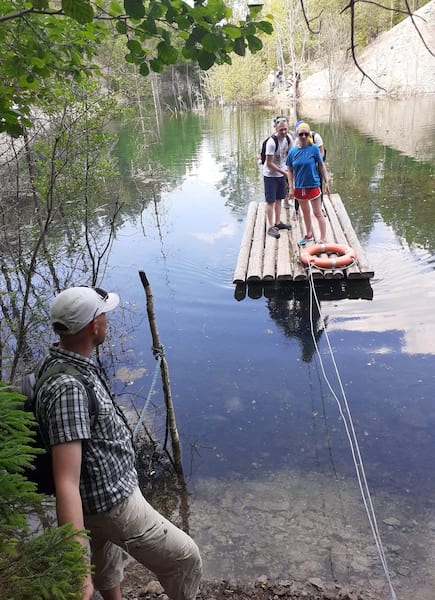
Commencing studies at the Estonian Language Centre in Narva this autumn will be 210 people in 13 groups at all levels between A1 and C1. Three of the groups will be learning together online. There will also be five courses focussing on specific language skills in which a further 90 people will be taking part.
“Apart from the courses, we’ll again be organising a range of other activities that support language-learning and broaden people’s horizons,” said Anna Farafonova, the director of the Estonian Language Centre in Narva. “We’ll also be launching some series of courses and get-togethers that provide the participants with more in-depth knowledge of Estonian culture and help them hone more specific aspects of the language, like reading and writing skills, plus presentation skills. Our practical pronunciation course has proven very popular and will be continuing as well.”
A new format being launched in the 2021-2022 academic year is a creative course for learners at the B1 level on which the participants will absorb the language through creative activities. The learners will put their thoughts and feelings into words on paper, read and perform and generally share their creativity with others. Presentation practice classes will also be continuing, giving participants the chance to speak on topics of importance to them and thereby hone their presentation skills, learn something new and talk together in Estonian about the topics raised.
In September, the centre will be screening films from the Matsalu Nature Film Festival for the second year running. Focussing on the links between nature, people and the environment, the films taking part in the festival come from all around the world. The screenings will be followed by discussions and workshops. The festival is free of charge. Film-lovers of all ages are invited to come along, but students in particular are very welcome.
Information about all of the events taking place at the Estonian Language Centre in Narva can be found on our regularly updated https://www.integratsioon.ee/en/kalender.
Looking ahead to the new academic year at the Estonian Language Centre in Tallinn
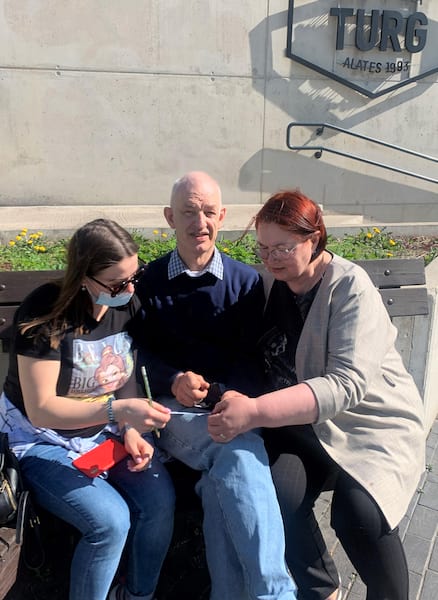
The Estonian Language Centre in Tallinn will be opening its doors to 18 groups at the A1, A2, B1 and B2 levels this autumn, with almost 300 language-learners taking up studies of Estonian. The courses will take place both face to face and, given the coronavirus situation, online. Forming part of the study programme in the new academic year will be a cooperation project with the Museum of Estonian Architecture: some lessons will be held at the museum and at other sites around the city.
“As ever, we’ll be offering plenty of opportunities for the students to practise their Estonian and soak up some culture in addition to the language lessons themselves,” explained Hedvig Evert, the director of the Estonian Language Centre in Tallinn. “Despite the challenges presented by the pandemic, we’ve offered a wide range of activities from winter all the way through summer – 37 of them, in fact, all designed to support language-learning. They’ve proven very popular, with almost a thousand people taking part. In autumn we’ll be continuing with some of the most popular ones, like the Metsamäng game on the State Forest Management Centre’s hiking trails, the architecture tours in Tallinn, our food and art discussion groups at Fotografiska and our conversation classes for both beginners and more advanced learners. New activities we’re launching are a calligraphy workshop, a series of Friday church visits and concerts, ‘Legends of the Old Town’ tours in Tallinn with Jaak Juske and a few more surprises, which you’ll find regularly updated information about on our events calendar.”
In Pärnu, the conversation class, world cuisine workshops and singing and discussion groups organised by the Estonian Language Centre in Tallinn are set to continue. There will also be further excursions to Estonian cultural sites like writer Carl Robert Jakobson’s farm in Kurgja and poet Lydia Koidula’s home museum.
As ongoing projects, the Estonian Language Centre in Tallinn is planning to build bridges with a range of cultural institutions. Opening their doors to learners and unveiling what goes on behind the scenes will be the Estonia Opera and Concert Hall, Tallinn Central Library and its branches and the Estonian Open Air Museum.
Language studies offer summertime fun to learners around Estonia and Estonians abroad
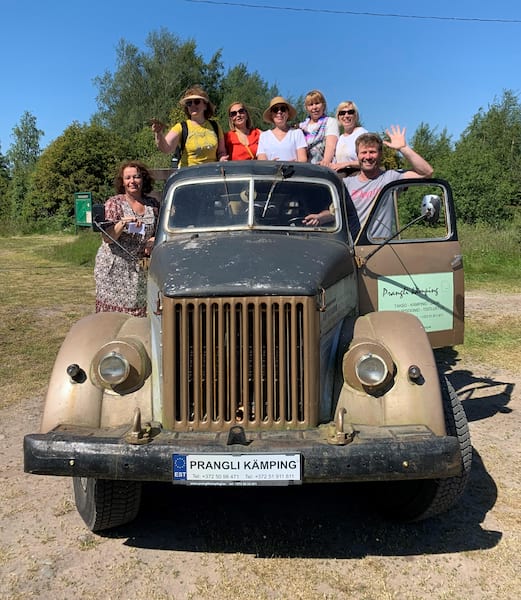
Estonian language studies and practice opportunities offered by the Integration Foundation continued over summer on traditional language courses, in language cafés, at language roulette and book club meetings, in language and culture clubs and on language-learning excursions all over Estonia.
Workshops enabled participants to practise their spoken Estonian, broaden their vocabulary and make friends. In Pärnu, participants learned about national dishes from different countries and how to make them and explored the Estonian music and literary scenes. Meanwhile, at Narva Museum and Lahemaa Heritage House, learners delved into the secrets of Estonian folk culture. Excursions took students to the island of Prangli to discover its culture and natural environment, to Pärnu County to learn about its farms and food culture and to Aidu to marvel at its manmade landscapes. There was also a forest hiking game, architecture tours, art talks and other get-togethers supporting participants’ language-learning endeavours and enriching their vocabulary and outlook.
A number of intensive language-learning camps were also held over summer. An Estonian-English tandem camp was held in Jõgeva County for the first time, as well as a camp on the island of Saaremaa showcasing country life for language-learners and tandem choir practice camps in Käsmu. An Estonian-Russian tandem camp is planned to be held in Võru County during August. A traditional language camp in Viljandi County was also organised for young Estonians living abroad, giving them the chance to learn and practise their Estonian, meet and make friends with Estonians their age from other countries and learn about Estonia’s culture, all of which helps strengthen their ties with the country.
People of different cultures contribute to summer events organised by Integration Foundation
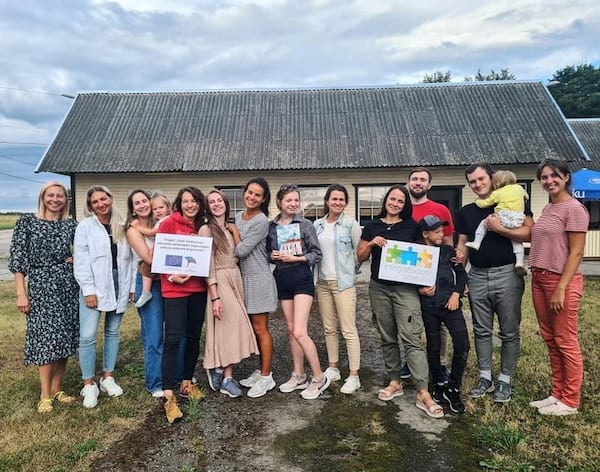
One area of activity of the Integration Foundation is encouraging the development of and helping to organise projects that bring together residents of Estonia who speak different mother tongues and to integrate communities. The aim of these activities is to promote closer contact between representatives of different nationalities and to boost awareness of the cultural diversity that exists within Estonia.
A seminar and series of workshops entitled ‘How to design a digital culture service for a target group with a mother tongue other than Estonian’ took place on 8 and 15 June in association with the Estonian Institute. The seminars were held in a hybrid format, taking place simultaneously in the offices of the Estonian Institute in Tallinn and on Zoom. A total of 20 organisers of cultural events and representatives of cultural institutions took part. The seminars gave the participants the opportunity to share their knowledge of the creation of cultural services and the running of virtual cultural events and to gain support for the further development of their ideas.
In cooperation with Smart Wood Stuudio, a series of get-togethers entitled ‘Art, Language and Culture’ was devised to take place throughout summer, with the participants visiting Estonian cultural sites and taking part in Estonian-language drawing workshops and discussions. Art as a shared hobby is a bridge that helps people make friends and brings representatives of different cultures together.
A friendly e-sports match was held between the e-sports teams from Tartu and Narva on 17 July in cooperation with the Estonian E-Sports Federation. The aim of the event was to popularise e-sports and to break down the language barrier between the Estonian- and Russian-speaking communities in the country. The game in Narva was followed by 23 people in situ, with over 100 more watching online. .
Roma community mentors from Valga host city camp for youngsters
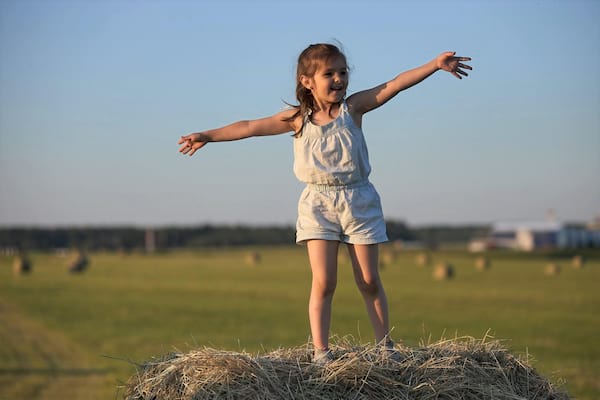
Two mentors for the Roma community employed by the Integration Foundation have been active in Valga since June 2020: Irina Anissimova and Oleg Artemchuk. They are tasked with promoting cooperation between Roma families, the local government and its agencies and institutions, advising clients individually and organising activities for them. The aim is to boost young people’s interest in education and to get them more involved in social life.
The mentors hosted a city camp for Roma youth from 12-18 July. There were 15 participants between the ages of 8 and 21, who gained new knowledge of a range of fields, from history and literature to physics and engineering. The youngsters took part in training sessions and practical workshops and went on excursions to other parts of Estonia. Since many Roma youth have not had the opportunity to visit other parts of the country before, they learnt more about Estonia as a whole thanks to the camp. The most exciting excursions, according to the young participants, were those to the AHHAA Science Centre, the Peipsimaa Visitor Centre and the Valga Military Museum, while they also enjoyed the Pavel Varunin workshop.
Their mentor Oleg said that the programme of events for the camp was designed especially with Roma youngsters in mind so as to inspire them to obtain an education. He added that the excursions not only gave the participants the opportunity to learn new things, but also enhanced their social skills and gave them a taste of independence. He added that since they have mentors, the youngsters no longer feel shunned but that they are as important to the country as everyone else. Their other mentor, Irina, said that in the course of the year the youngsters have become more open, have started asking for help and advice and have developed an interest in studying and working.
Further plans have been made to support the Roma community in Valga. Irina explained that more work needs to be done with families and that a Sunday school needs to be opened in order to work with children. In the short term they will need to provide help to six people in finding work and to encourage five youngsters to continue their studies. Oleg added that in the future he also hopes to organise such camps abroad.
Nominees for the annual Integration Awards can be submitted until 13 September
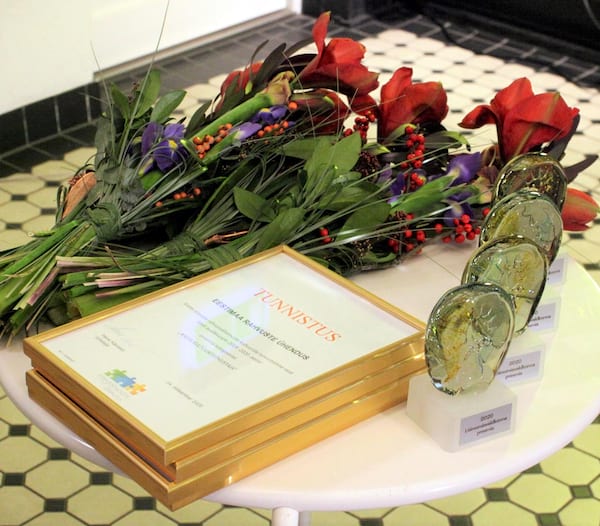
The awards are designed to recognise those who have contributed to the showcasing of different cultures and implemented projects that support cooperation between people who speak different mother tongues.
The integration prize fund is EUR 4,000. The prizes will be awarded in four categories and the best project promoter of each category will receive a prize of EUR 1,000. Projects with the implementation period between 23.09.2020 - 12.09.2021 can be submitted to the competition.
Applications for awards can be submitted in the following categories:
- Cultural Introducer of the Year (introduction of the cultures of national minorities living in Estonia to the Estonian public);
- Bridge Builder of the Year (implementation of cooperation projects between native Estonians and non-Estonian residents);
- Message Carrier of the Year (development of attitudes supporting integration through the media);
- Spark of the Year (implementation of outstanding activities in the field of integration).
To participate in the competition, you must fill in the application form available on the Integration Foundation’s website in September 13 the latest. The full information can be found here (in Estonian)
https://integratsioon.ee/konkurss-loimumisvaldkonna-2020-2021-aasta-pre…
The awards are financed by the Ministry of the Culture.
Open calls for tenders and calls for proposals
A procurement has been launched for an awareness-raising campaign for museum visitors and theatre-goers who speak mother tongues other than Estonian. The second part of the application round for sports and cultural events promoting entrepreneurship in Ida-Viru County will open in August.
Information on procurements and application rounds that are currently open is available on the website of the Integration Foundation in Estonian.
Our calendar
Summer’s not over yet – there are more events to come! On 17 & 18 August the Integration Foundation will be taking part in Cities & Municipalities Day in order to promote the integration services offered by the state; on 20 August we will be celebrating the 30th anniversary of the restoration of Estonia’s independence with a song festival in Narva; on 22 August an Estonian-Russian tandem camp will open in Võru County; on 4 & 11 September we will be sharing information at the KU-KУ Estonian language fair; and in mid-September we will be inviting everyone to come along and enjoy the Matsalu Nature Film Festival in Narva.
Information on events that take place by our organisation, participation or support, can be found in the calendar published on our website.
Our news
You can read the latest announcements of the Integration Foundation in the news section of our website and on the Facebook page of the Integration Foundation or the Estonian Language House.
